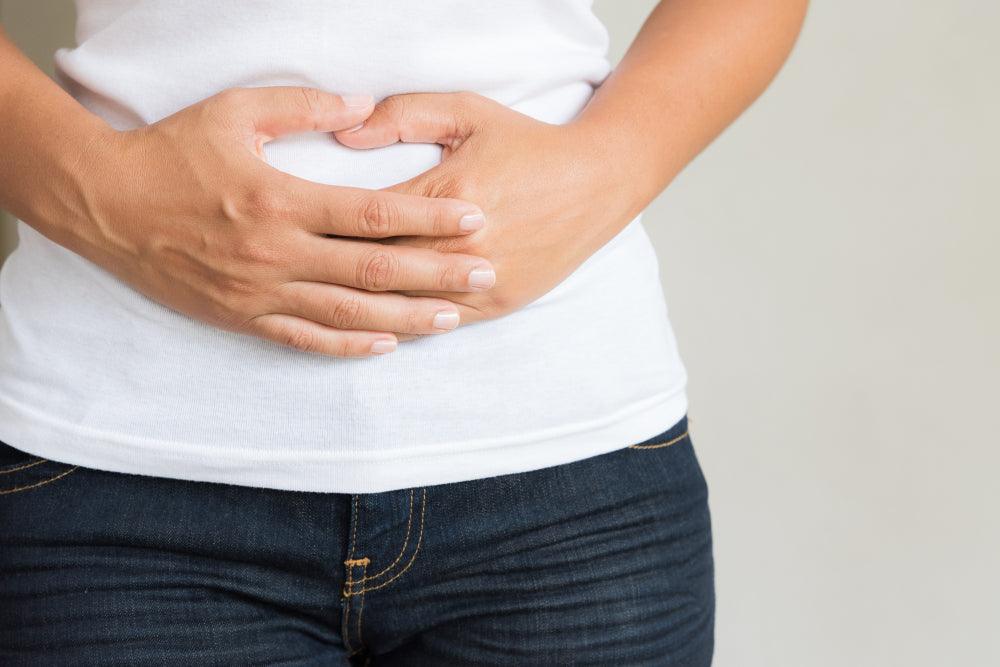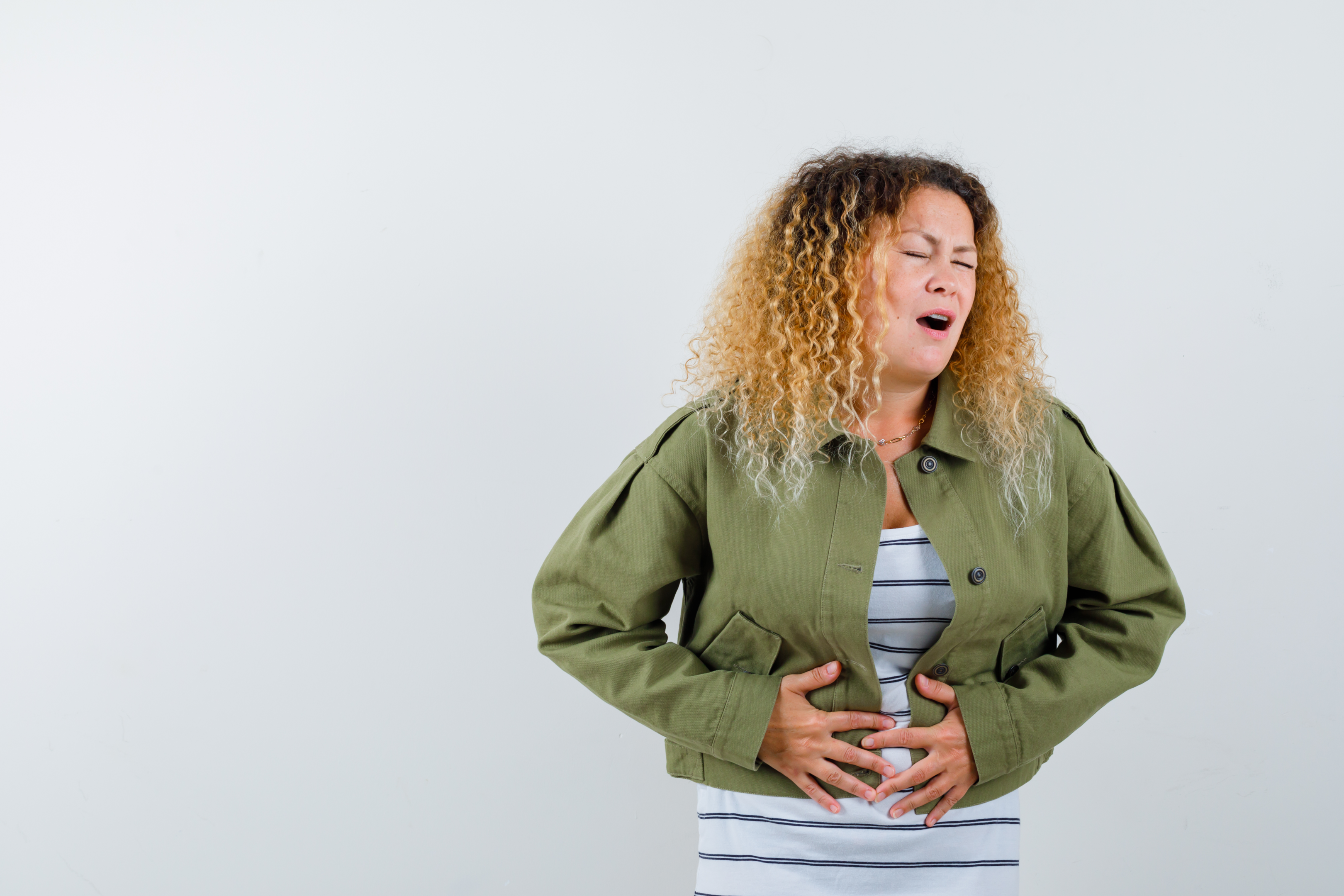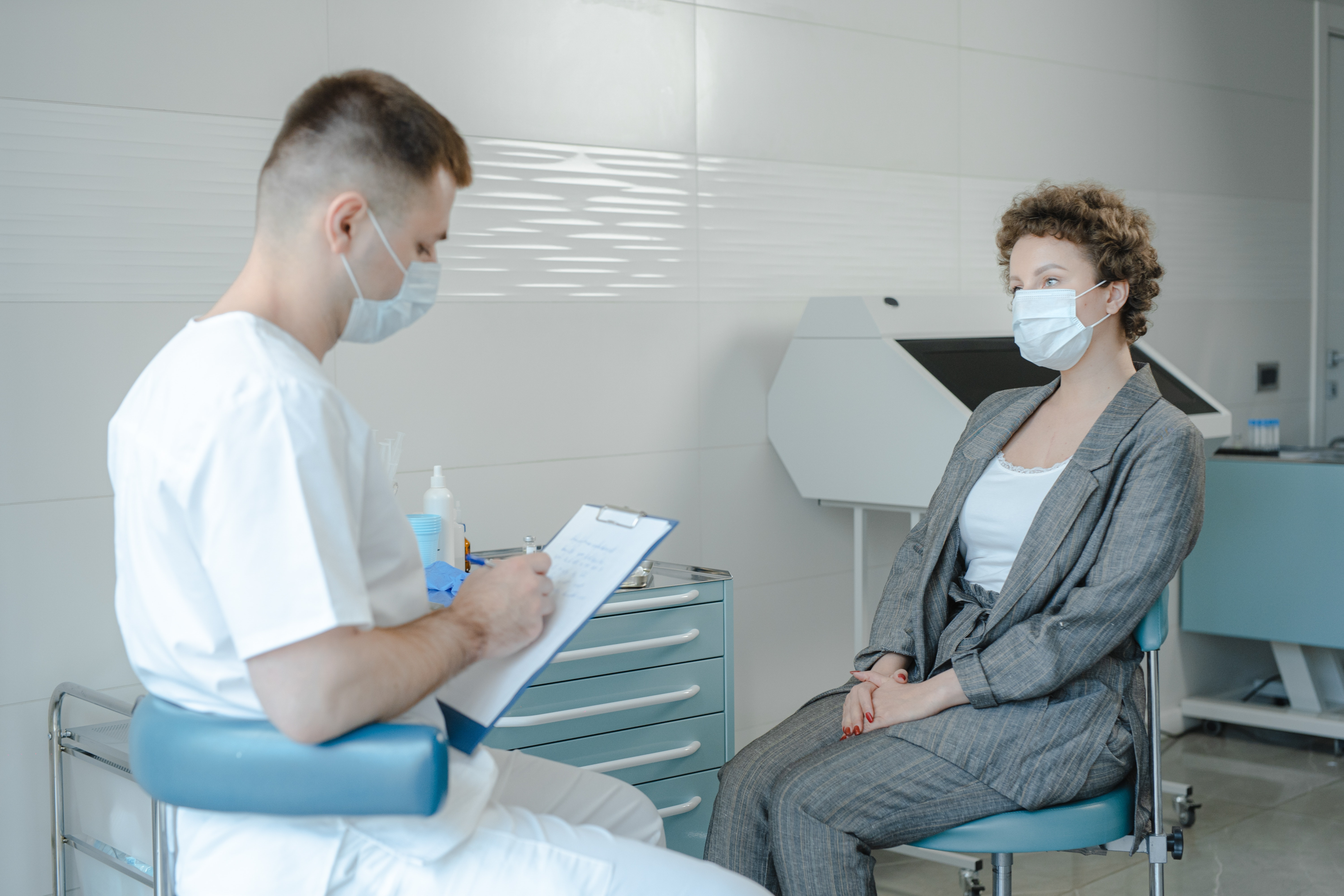Can Menopause Cause Bloating?


While everyone has experienced bloating at a particular time in their life, it is believed that the bloating that many menopausal women suffer from is a result of the fluctuating hormone levels of progesterone and oestrogen in the body. Inevitably, as women become older, menopause sets in, and they cease getting periods. Moreover, constipation, a sense of tightness or fullness in the stomach, a rise in passing gas or flatulence, and a lack of bowel movement are all bloated menopause symptoms. You may also have daily or occasional bloating throughout menopause.

(Photo from https://www.freepik.com/)
Bloating episodes might become more regular and uncontrolled as you transition from perimenopause into complete menopause. This is because your sex hormones, including oestrogen and progesterone, constantly fluctuate throughout this period. This is significant since oestrogen is frequent related to water retention in the body, which might result in painful bloating.
Moreover, the synthesis of oestrogen in our ovaries becomes unpredictable during perimenopause, and it may produce periods of painful bloating when it surges. Although both oestrogen and progesterone secretion is decreasing at this time, oestrogen is reducing at a slower pace, frequently resulting in oestrogen dominance because the quantity of oestrogen in our systems increases throughout menopause and perimenopause, and the likelihood to experience bloating.
Higher oestrogen in our bodies also causes us to draw extra water, contributing to that all-too-common feeling of bloating, fullness, and abdominal pain. Not only does it have the potential to add just several pounds to the scale owing to water retention, but it may also lead to abdominal bloating, which is unpleasant.

(Photo from www.freepik.com)
Outside of menopause, there are other significant reasons for bloating that often make this symptom more regular and painful. Several of these factors include:
Obesity and weight gain
Abdominal muscle weakness
Problems from NSAID usage frequently
If you have severe and chronic painful bloating affecting your life quality or is painful or intensifying, it is suggested that you see your doctor and check out any other, more severe probable reasons.

(Photo from www.freepik.com/)
Whereas the bloating menopausal symptoms are unpleasant, there are good techniques to alleviate the pain.
When you eat quickly, take a minute to pause, sit down, and eat more calmly. Reduce tension by disconnecting and setting your phone off before going down to eat. Make an effort to chew your food correctly and slowly, as this can aid in the discharge of digestive enzymes.
Regarding eating, it is worth rethinking what defines a healthy meal throughout menopause. Even several healthy foods can cause bloating and gas. For instance, beans trigger bloating, as well as veggies like broccoli, cauliflower, and Brussels sprouts. Furthermore, gluten-containing foods can trigger bloating even if you aren't gluten-vulnerable. Also, dairy could become a type of food that induces digestive distress. So, make sure to choose certain foods that will prevent bloating during menopause.
Taking enough water might help your digestive system stay healthy throughout the day. Using liquids to combat water retention might appear paradoxical, but it works. Adequate water may assist in reducing constipation and the associated bloating.
Reduced salt intake may aid in lowering bloat triggered by water retention. If you'd like to add more flavour to your cuisine but do not want to use salt, consider adding vinegar or lemon. Apple cider vinegar, in particular, could be a terrific complement and may help with digestion. You may also include seasonings that are low in salt.
Moreover, chewing gum, carbonated drinks, alcohol, and sugar are also quick to cause gas and bloating. Thus, if you frequently have to bloat throughout menopause, it might be preferable to ingest them within limits.

(Photo from pexels.com)
Move Around To Decrease Bloating
Exercising regularly throughout menopause is suitable for general wellness and cardiovascular efficiency, but it may also lessen the intensity and frequency of bloating occurrences in the abdominal area. Moving your body encourages digestive motion, which aids in breaking down gas bubbles that could lead to bloat. After a 30-minute brisk walk or cycle exercise, consider a little yoga, like the cat-cow movement or torso twists, to assist in preventing or reducing bloating.
Consider Taking Probiotics
Including probiotics in your regular diet or as a nutritional supplement might also assist in reducing bloating throughout menopause. Numerous probiotic supplements help avoid bloating and improve digestive and gut health. Before incorporating additional supplements into your regimen, consult your healthcare professional or wellness professional first since they are the most familiar with your health information.
Over-The-Counter Supplements
Numerous over-the-counter (OTC) and prescription drugs may be used to minimize and cure bloated menopause:
A pharmacy or your physician might be capable of prescribing an anti-bloating drug to consider.
These are often known as diuretics, which are only accessible with a physician's prescription. They may assist your body in not retaining too much water.
When you continue to have a menstrual period, birth control pills may assist you with bloating and other premenstrual syndrome signs since they can regulate your hormones. You must talk to your physician about what works best for your body.
This is a therapeutic option for certain women throughout menopause. It controls the amounts of progesterone and oestrogen. Due to concerns regarding side effects, you must consider discussing this therapeutic option with your physician.

(Photo from pexels.com)
Moreover, bloating is common in women during hormonal variations linked with their menstrual cycle and menopause. Nevertheless, bloating that goes away on its own is usually not a reason for worry. However, a woman must see her physician if the bloating is severe and unbearable. Painful and excessive bloating that lasts for many weeks might indicate another medical disease that a doctor must examine.
Bloating is a frequent symptom in the run-up and throughout menopause. Bloating is most often caused by hormonal fluctuations, although other variables may also be involved. Luckily, most cases of bloating recover rapidly with lifestyle changes and medication. As the body adapts to its new normal hormone levels, bloating will become less common.
Furthermore, bloating during menopause is typically efficiently managed with either lifestyle modifications or medication. Bloating might disappear after menopause as your body adjusts to fewer hormones. However, IBS bloating may also occur after menopause.










Plus get the inside scoop on our latest content and updates in our monthly newsletter.